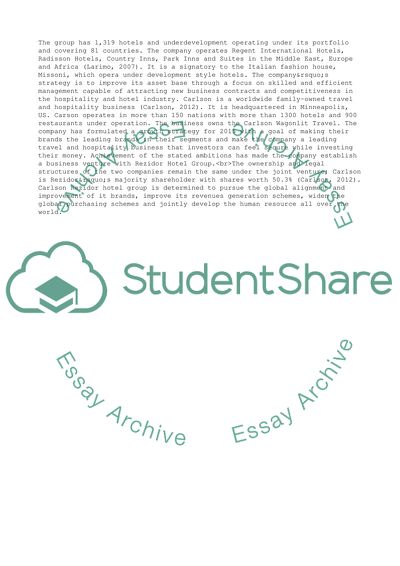Cite this document
(Strategic Management of Carlson Rezidor Hotel Group Case Study - 26, n.d.)
Strategic Management of Carlson Rezidor Hotel Group Case Study - 26. Retrieved from https://studentshare.org/management/1785249-strategic-management
Strategic Management of Carlson Rezidor Hotel Group Case Study - 26. Retrieved from https://studentshare.org/management/1785249-strategic-management
(Strategic Management of Carlson Rezidor Hotel Group Case Study - 26)
Strategic Management of Carlson Rezidor Hotel Group Case Study - 26. https://studentshare.org/management/1785249-strategic-management.
Strategic Management of Carlson Rezidor Hotel Group Case Study - 26. https://studentshare.org/management/1785249-strategic-management.
“Strategic Management of Carlson Rezidor Hotel Group Case Study - 26”, n.d. https://studentshare.org/management/1785249-strategic-management.


